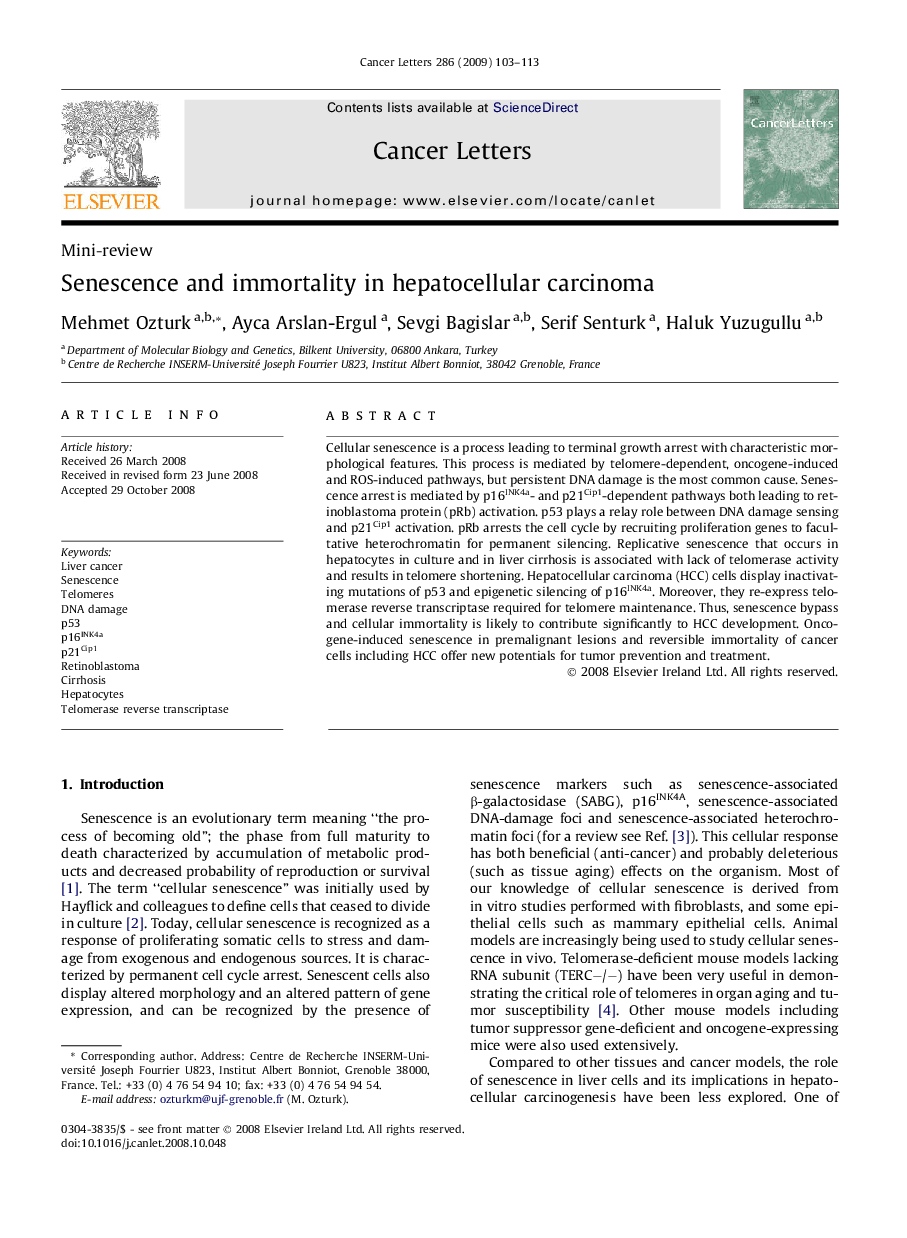| کد مقاله | کد نشریه | سال انتشار | مقاله انگلیسی | نسخه تمام متن |
|---|---|---|---|---|
| 2114216 | 1084524 | 2009 | 11 صفحه PDF | دانلود رایگان |

Cellular senescence is a process leading to terminal growth arrest with characteristic morphological features. This process is mediated by telomere-dependent, oncogene-induced and ROS-induced pathways, but persistent DNA damage is the most common cause. Senescence arrest is mediated by p16INK4a- and p21Cip1-dependent pathways both leading to retinoblastoma protein (pRb) activation. p53 plays a relay role between DNA damage sensing and p21Cip1 activation. pRb arrests the cell cycle by recruiting proliferation genes to facultative heterochromatin for permanent silencing. Replicative senescence that occurs in hepatocytes in culture and in liver cirrhosis is associated with lack of telomerase activity and results in telomere shortening. Hepatocellular carcinoma (HCC) cells display inactivating mutations of p53 and epigenetic silencing of p16INK4a. Moreover, they re-express telomerase reverse transcriptase required for telomere maintenance. Thus, senescence bypass and cellular immortality is likely to contribute significantly to HCC development. Oncogene-induced senescence in premalignant lesions and reversible immortality of cancer cells including HCC offer new potentials for tumor prevention and treatment.
Journal: Cancer Letters - Volume 286, Issue 1, 1 December 2009, Pages 103–113